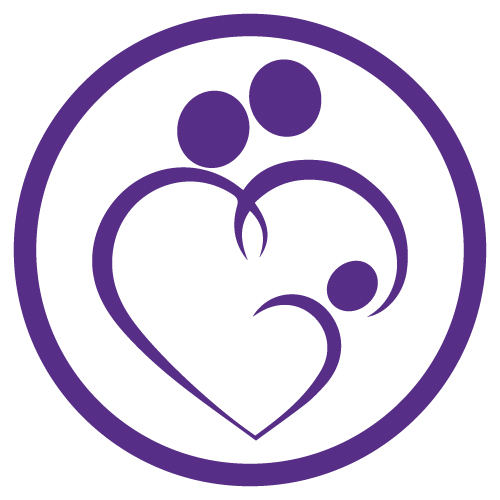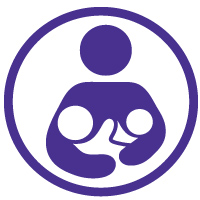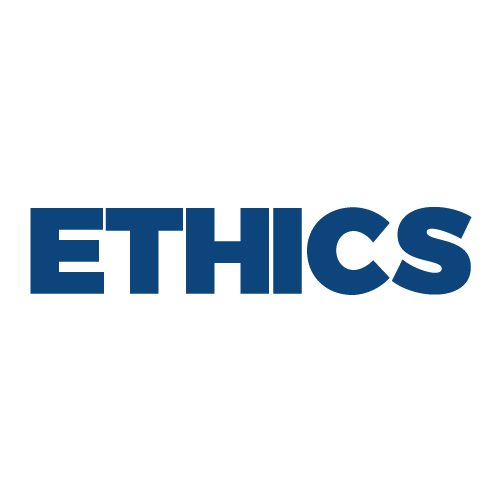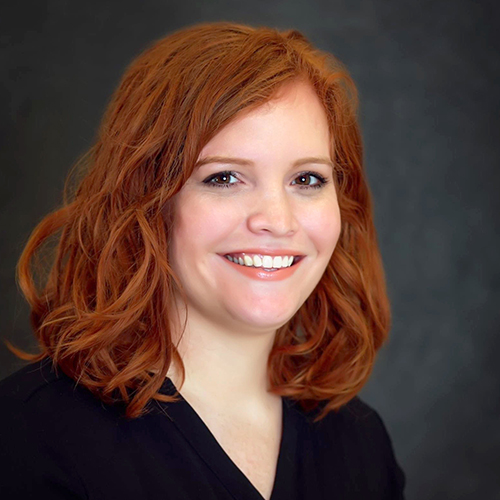 Ethics for Lactation Professionals Online Course(s) & Continuing Education
Ethics for Lactation Professionals Online Course(s) & Continuing Education
Access the latest clinical skills and research for Ethics for Lactation Professionals for Lactation & Breastfeeding professional training. These Ethics for Lactation Professionals online courses provide practice-changing skills and valuable perspectives from leading global experts. This Ethics for Lactation Professionals education has been accredited for a variety of CEUs / CERPs and can be accessed on-demand, at your own pace.


Bryna is a lactation consultant, mentor, educator, and birth doula in the Pacific Northwestern United States. They are active in their community as an advocate for mutual aid, reproductive justice, and reduction in barriers to care. They also own and manage an inclusive private practice. As a member of both Queer and Neurodivergent communities, offering inclusive care on every level is very important to Bryna. Their vision is to offer information and tools to providers to build a community of comprehensive, concordant, and individualized care for all families in the perinatal period.
Topic: Breastfeeding With Ease: The Impact of Infant Reflex Emergence and Integration - [View Abstract]
Topic: Rhythmic Movement for Breastfeeding Function - [View Abstract]
Infant Formula feeding families often go unsupported, even ignored, in the field of lactation and infant feeding care. Even the name of the providers who are best trained in the physiology and support of infant feeding is exclusionary…Lactation Consultants. As a result, families who are infant feeding their baby or babies with formula are left without high-quality support, even though there are providers who are available and trained to help them. Whether it’s the attitude of the individual lactation supporter or the environmental biases of the family’s perinatal care, or lack of information, the fact remains that these families experience less support and care than their body feeding counterparts. Learn more about the ethics of supporting infant formula feeding families, and the responsibilities of the IBCLC or other lactation care provider.


Nancy Mohrbacher was born and raised in the Chicago area, where she lives today. She is a board-certified lactation consultant who has been helping nursing mothers since 1982. Her breastfeeding books for parents and professionals include Breastfeeding Answers Made Simple and its Pocket Guide; Breastfeeding Made Simple(with Kathleen Kendall-Tackett); Working and Breastfeeding Made Simple; and Breastfeeding Solutions and its companion app for Android and iPhone.
Nancy currently contracts with hospitals to improve breastfeeding practices, writes for many publications, and speaks at events around the world. Nancy was in the first group of 16 to be honored for her lifetime contributions to breastfeeding with the designation FILCA, Fellow of the International Lactation Consultant Association.
Topic: Applying Bioethics to Milk Banking and Milk Sharing - [View Abstract]
Topic: Concerns About Low Milk Production - [View Abstract]
Topic: Transitioning the Preterm Infant to the Breast - [View Abstract]
Topic: Using Gravity-Assisted Positions to Prevent Early Breastfeeding Problems - [View Abstract]
Topic: What Mothers Need to Exclusively Breastfeed - [View Abstract]
Topic: What's New In Lactation - [View Abstract]
This session provides a summary of the 7 universal principles of bioethics and examples of how they apply to milk banking and milk sharing. It also offers an analysis of the evidence that supports the use of pasteurized donor human milk with preterm babies and examines the range of milk-sharing options and the ethical and practical considerations for parents and breastfeeding supporters.


Marsha is a registered nurse and international board certified lactation consultant. She has been assisting breastfeeding families in hospital, clinic, and home settings since 1976. Marsha is the executive director of the National Alliance for Breastfeeding Advocacy: Research, Education, and Legal Branch (NABA REAL). As such, she advocates for breastfeeding at the state and federal levels. She served as a vice president of the International Lactation Consultant Association (ILCA) from 1990-1994 and in 1999 as president of ILCA. She is a board member of the Massachusetts Breastfeeding Coalition, the US Lactation Consultant Association, and Baby Friendly USA, USLCA’s representative to the USDA’s Breastfeeding Promotion Consortium, and NABA REAL’s representative to the US Breastfeeding Committee. Marsha is an international speaker, and an author of numerous publications including ones on the hazards of infant formula use, Code issues in the US, and Breastfeeding Management for the Clinician: Using the Evidence.
Topic: Nipple Nuances: From Pain to Peppermint and What the Textbooks Don't Cover - [View Abstract]
Medical ethics is a foundation of clinical practice. While we all strive to practice in an ethical manner, there are a number of situations and issues that arise which may challenge our ethical principles. This presentation explores the application of medical ethics to clinical lactation practice.

Avoid Lawsuits and Pink Slips! Legal and Ethical Issues for the IBCLC

Liz Brooks is a private practice International Board Certified Lactation Consultant (IBCLC) and licensed lawyer, with expertise in criminal, administrative, non-profit, ethics, and lactation-related law. Liz offers in-home lactation consultations, and bedside care and teaching in two Baby-Friendly-designated hospitals.
She has been a leader in organizations for IBCLCs, breastfeeding promotion, and non-profit human milk banking. She authored the only textbook on legal and ethical issues for the IBCLC, and writes on health care ethics, equity, and conflict-of-interest in several books, blogs, and peer-reviewed journals.
She is a popular international conference speaker, offering practical tips with wit and wisdom for anyone who works with lactating and human milk-using families. Liz self-identifies as a cisgender hetero white woman with unearned privilege, and uses she/her/hers pronouns.
Topic: Using a Cool Head When You’re on the Hot Seat: Ethical and Legal Topics That Make Us Sweat, and How to Avoid Getting Burned - [View Abstract]
Topic: What’s Too “Friendly” for an IBCLC on Social Media? - [View Abstract]
Topic: Whiners and Deniers: Ethics and Diplomacy in Difficult Cases - [View Abstract]
This presentation is a first of its kind: a "survey course" of legal and ethical tensions unique to the IBCLC. Regardless of one’s other professional licenses or credentials, there are four primary practice-guiding documents for the IBCLC. After a review of those “rules of the road,” we’ll navigate a simple algorithm the IBCLC can use to determine what she could, should or must do, in any situation that sets off ethical red flags in the IBCLC’s mind. Then, we’ll hit highlights of legal and ethical issues for the IBCLC: certification vs. licensure vs. certificates-for-classes-and-courses; who is the patient/client?; conflicts of interest (and tensions from “wearing many hats”); intellectual property law; the (WHO) International Code; the IBCLC in the courtroom (as expert or witness); the IBCLC on the Internet; the IBCLC as breastfeeding advocate, and its corollary: the IBCLC as advocate for a breastfeeding mother.


Dr. Rice has been working at the intersection of education and health for social justice and public good. She is the former Executive Director of the Breastfeeding Coalition of Oregon. Currently, Dr. Rice works on organizational development, communication, marketing, public policy and community engagement to advance health equity through access to donor human milk. A national thought leader, she is deeply engaged in convening conversations about the importance of maintaining women’s biological integrity, advancing feminist approaches to human milk banking and at the same time, encouraging capacity building for human milk derived therapies improving health outcomes for the most vulnerable babies.
Most recently Dr. Rice provided consulting as a Policy Associate with Mothers' Milk Bank of San Jose and has provided strategy and policy consulting for the Human Milk Banking Association of North America (HMBANA). Marion holds a doctorate in Education Leadership and is an Internationally Board Certified Lactation Consultant, IBCLC.
This session will look at how for profit corporations are seeking to aggregate, control and exploit human milk. In the absence of federal health policy and consumer regulation/protection, companies are emerging seeking to build commercial markets for human milk often under the guise of improving the economic status of women and infant health.
We will examine companies currently paying for milk both domestically and internationally and the implications for women and emerging policy both at the federal and state level.
Entities setting a price for human milk in the absence of supportive public policy may in fact undermine women’s biological integrity, infant health and contribute to the vulnerability of women and babies.
I will ask participants to consider the issues and to support models of community engagement and decision making that are women centered and women led that keep this biologically critical substance within the community from where it comes; supporting breastfeeding and benefiting women and babies.
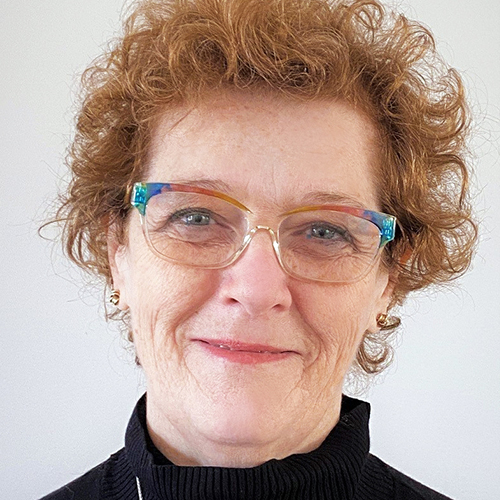

Kathy O'Grady Venter is a registered nurse and retired midwife. She has been an International Board Certified Lactation Consultant (IBCLC) since 1990.
Kathy is a WHO|UNICEF trained BFHI Assessor and Trainer (1991) through IBFAN Africa and currently she is a CoChair of the BFI assessment committee of the Breastfeeding Committee for Canada (BCC), BFI Lead Assessor – BCC Baby Friendly Initiative (BFI) Assessment Committee, Lactation consultant Sunnybrook Health Sciences Centre in Toronto and Breastfeeding educator and BFI consultant.
In the past, Kathy has been Chair for the BCC, Chair of the BFI assessment/education committee of the Baby Friendly Initiative Ontario and the recipient of the Canadian Lactation Consult Association Award for Clinical Excellence.
Approaching clinical care in an ethical manner is a core component of providing care as an IBCLC. Sometimes however, it can be hard to figure out what the ethical response is during everyday practice. Through the lens of clinical scenarios, this presentation encourages delegates to think critically about ethical practice and raises awareness of potential inconsistencies in care and subtle ethical issues which are sometimes overlooked. Learn more about your ethical responsibilities and ways to manage ethical dilemmas in clinical practice.
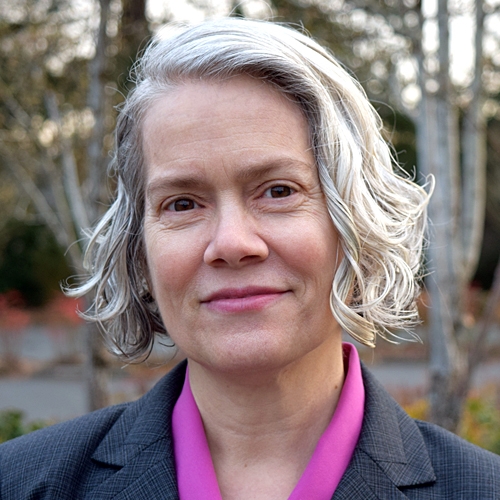
Cultural Competence or Cultural Humility? A Roadmap for Lactation Specialists

Cynthia Good, MS Clinical Psychology, is an International Board Certified Lactation Consultant, Clinical Counselor, author, consultant, and internationally recognized speaker. She is the Director of LifeCircle Consulting, LLC and is Certified in Acute Traumatic Stress Management. She is based in the Seattle, Washington, USA area, where she formerly served as an Adjunct Professor in the Department of Midwifery at Bastyr University where she taught counseling skills and is a therapist at Sandbox Therapy Group where she works with children, adults, and families. Cynthia has a strong interest in the emerging field of lactational psychology. She brings the evidence and insights of psychology and lactation consulting to her presentations, providing information and teaching skills that are essential to understanding and effectively responding to the complex psychosocial realities of families living in diverse contexts. The focus of her presentations includes communication skills and counseling techniques for perinatal care providers; equity, diversity, and inclusion; infant feeding rhetoric; perinatal mental health; perinatal loss, grief, and trauma; ethics; serving as an expert witness in lactation-related court cases; cultural competence and humility; vitamin D; and more.
Topic: Cultural Competence or Cultural Humility? A Roadmap for Lactation Specialists - [View Abstract]
Topic: Heartbroken: Loss and Grief in the Perinatal Time Period - [View Abstract]
Topic: It Wasn’t Supposed to be Like This: Traumatic Birth, Traumatic Stress, and Breastfeeding - [View Abstract]
Topic: My Brain is Doing What? Bias, Ethics, and the Lactation Specialist - [View Abstract]
Topic: Perinatal Mental Health Screening: A Primer for Lactation Specialists - [View Abstract]
Topic: The IBCLC as Expert Witness: Role, Strategies, and Resources - [View Abstract]
Topic: The Rug Pulled Out from Underneath Me: Depression During Pregnancy and After Birth - [View Abstract]
Topic: Unpacking the Invisible Diaper Bag of White Privilege: An Overview of Racial Inequities in Breastfeeding Support - [View Abstract]
Topic: We’re Human, Too: Hidden Dynamics in Our Communication with Clients - [View Abstract]
Culture is an integral part of all encounters with breastfeeding families—whether the lactation specialist’s and the family’s cultural backgrounds are similar or dissimilar. Cultural competence is explicitly or implicitly mandated or recommended in codes of ethics, position statements, and legislation related to a variety of fields, including those that involve the provision of breastfeeding support. For example, IBCLCs are ethically required to provide culturally appropriate care. In spite of the mandate for cultural competence, there is a dearth of information in the field of breastfeeding support regarding its development. This session reviews the ethical call for the development of cultural competence. Five areas of cultural competence—including cultural awareness, knowledge, skill, encounters, and desire—are presented and contrasted with cultural humility. This session also offers 10 “guideposts” for lactation specialists to explore on the non-linear, lifelong, transformative journey of cultural humility.
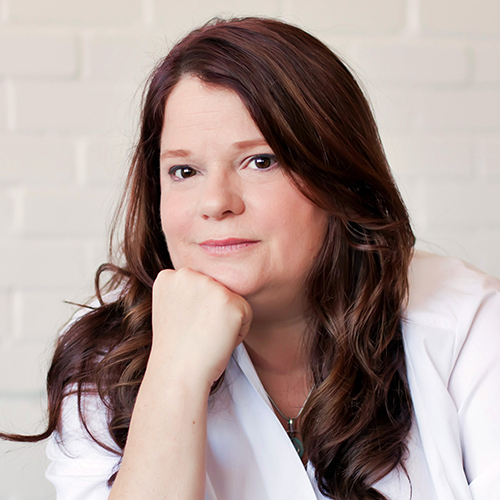

Barbara D. Robertson, IBCLC, has been involved in education for over 34 years. She received a Bachelor’s degree in Elementary Education in 1988 and her Master’s in Education in 1995. Barbara left teaching elementary students in 1995 to raise her two children. Barbara is now the Director of The Breastfeeding Center of Ann Arbor and of the brand new business LactaLearning.
The Breastfeeding Center of Ann Arbor will still continue to serve breast/chestfeeding families and now LactaLearning will be dedicated to all of Barbara’s professional lactation trainings. Barbara has developed two 95 hour professional lactation training, a group training and a completely self study training with Nancy Mohrbacher. Barbara’s idea of creating professional book groups has exploded with her hosting Making More Milk with Lisa Marasco, Supporting Sucking Skills with Cathy Watson Genna, Breastfeeding Answers, 2nd Edition with Nancy Mohrbacher, and new for the fall, Safe Infant Sleep with Dr. James McKenna. Barbara will be hosting a one day online conference in the fall with Lisa Marasco and Cathy Watson Genna using all of her tech savvy skills to make this a one of a kind experience. Barbara is also a speaker for hire on a wide variety of topics including Motivational Interviewing. Barbara volunteered for the United States Lactation Consultation Association as the Director of Professional Development for 4.5 years.
She just retired as Associate Editor for Clinical Lactation, a journal she helped create for USLCA. Barbara has free podcasts, a blog, and Youtube videos which can all be found on her websites lactalearning.com and bfcaa.com. She has written many articles as well. She loves working with parents and babies, helping them with breast/chestfeeding problems in whatever way she can.
Topic: Breastfeeding: Baby’s First Milestone - [View Abstract]
Topic: Clinical Assessment and Management of Low Milk Production - [View Abstract]
Topic: Deconstructing Online Messaging: Ethical Considerations - [View Abstract]
Topic: Milk Sharing and Milk Banking: Building Knowledge for Better Outcomes - [View Abstract]
Topic: The Baby's Not Gaining Weight! Now What? - [View Abstract]
Topic: The Great Nipple Shield Debate - [View Abstract]
If it is on the internet, it must be true! Not. Online media may present as an entertainment video but really be a commercial for a product. A publication can appear to a research article but actually be an opinion blog. We will identify ways in which businesses try to manipulate the viewer. Underlying messages will be decoded using the values of biomedical ethics and marketing techniques. Online breastfeeding media will be analyzed through the lens of biomedical ethics to uncover their true meaning.

Ending Sponsorship of Paediatricians by BMS Companies – Case Study of RCPCH

Tony Waterston is a retired consultant paediatrician who worked mainly in the community in Newcastle upon Tyne, UK. He spent 6 years working in Zambia and Zimbabwe and directed the Royal College of Paediatrics and Child Health Diploma in Palestinian Child Health teaching programme in the occupied Palestinian territories. He was an Editor of the Journal of Tropical Pediatrics and is on the Executive Committee of the International Society for Social Pediatrics. His academic interests are child poverty, advocacy for child health and children's rights. He is currently the lead moderator of CHIFA (HIFA's sister forum on child health and rights).
I shall summarise the problems created by sponsorship of paediatric associations by the manufacturers of Breastmilk Substitutes, using findings from the literature. I shall then present the experience of the Royal College of Paediatrics and Child Health (RCPCH) in the UK, over the last 20 years since efforts were first made by the membership to end the sponsorship by several formula manufacturers including Nestle and Danone. Following a number of motions passed at the AGM over successive years, members voted in 2017 to end sponsorship. Following this the leadership carried out a consultation of the whole membership which led to the policy of sponsorship being re-affirmed. In 2019, following a change in leadership and the publication of two critical papers in prominent medical journals, the policy was changed to end all sponsorship by BMS manufacturers. The essential ingredients of this successful advocacy were lobbying by members over a long period of years; the publication of critical data in medical journals; and the election of officers sympathetic to a change of policy.
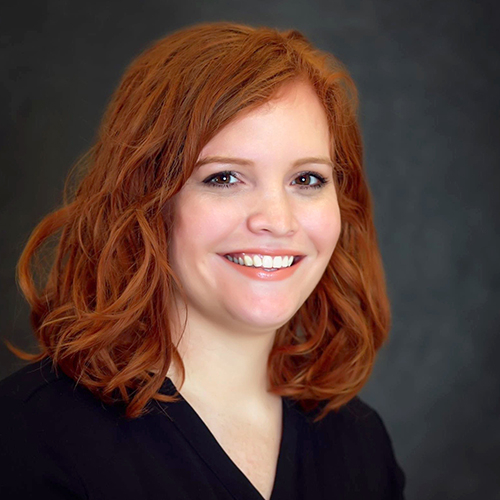

Kelsie Barta is an International Board Certified Lactation Consultant (IBCLC) who lives in Richmond, Texas with her spouse and two young children. She is currently pursuing a Doctorate of Philosophy in Nursing Science with Texas Woman’s University, with a primary research interest in lactation. She occupies her time with various part-time endeavors, including working as a Family Nurse Practitioner, a Clinical Nursing Instructor for nursing students in their maternal child health and pediatric clinical experiences, lactation consulting, and volunteer work with an emerging nonprofit maternal health organization in Houston, Texas. Her experiences with lactation are dynamic. Professionally, she has worked with breastfeeding/chestfeeding dyads in a postpartum hospital unit, through outpatient clinic visits, and via antenatal education. Her personal experiences include breastfeeding her children, serving as a resource to friends and family, and generally being “plugged in” to how lactation and lactation consulting may be perceived among people her age. She is passionate about empowering parents to reach their infant feeding goals, equitable access to lactation care, and health policy.
Health professionals that interact with birthing parents and their infants in the first few days of life are uniquely positioned to impact lactation. In the context of the maternal guilt, shame, and stigmatization that can accompany infant feeding decisions, lactation professionals have an obligation to provide ethical care. This presentation will review the ethical guidelines of autonomy, nonmaleficence, and justice in the context of lactation support in the early postpartum period. Participants will be presented with strategies to mitigate harm, promote autonomous decision-making, and increase equity in lactation care. Based on these ethical principles, the extent of lactation promotion and language considerations will be discussed, as well as an in-depth look at the health professional’s ethical responsibilities when encountering cessation of exclusive human milk feedings.



